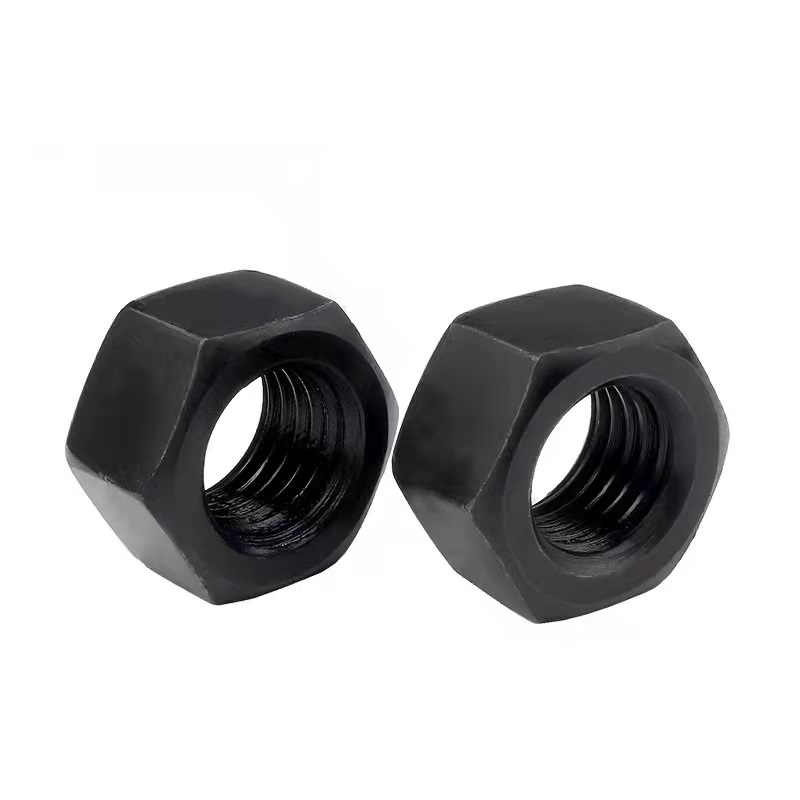316 stainless steel flat washers factories
ನವೆಂ . 21, 2024 04:17 Back to list
316 stainless steel flat washers factories
The Importance and Manufacturing of 316 Stainless Steel Flat Washers
316 stainless steel flat washers play a pivotal role in various industrial and construction applications due to their exceptional resistance to corrosion and ability to withstand high temperatures. The use of these washers is crucial in environments where exposure to harsh chemicals and saline conditions is prevalent, making them a preferred choice in marine applications, chemical processing industries, and other aggressive settings.
Understanding 316 Stainless Steel
Before delving into the manufacturing process, it's essential to understand what 316 stainless steel is. This alloy is composed primarily of iron, with significant amounts of chromium (16-18%), nickel (10-14%), and molybdenum (2-3%). The inclusion of molybdenum enhances corrosion resistance, particularly against chlorides and acids, which gives 316 stainless steel its superiority over other grades, especially 304 stainless steel.
Manufacturing Process of 316 Stainless Steel Flat Washers
The production of 316 stainless steel flat washers involves several key steps
1. Material Sourcing High-quality 316 stainless steel is sourced from reputable suppliers. Factories often conduct rigorous tests to ensure the material meets industry standards, ensuring the end product's reliability.
2. Cutting The stainless steel sheets are cut into disks of specified dimensions using high-precision laser cutting or stamping machines. This process ensures uniformity and precision in the shape and size of the washers.
3. Forming The cut disks are then formed into flat washers. This step may involve cold forming processes that enhance the density and strength of the washer, ensuring they can withstand the required load in applications.
316 stainless steel flat washers factories

4. Finishing After forming, the washers undergo a finishing process that may include polishing to enhance surface quality and prevent contamination. This is particularly important for washers that will be exposed to corrosive environments.
5. Quality Control Once manufactured, each batch of washers is subjected to stringent quality control measures. This includes checking for dimensional accuracy, surface defects, and mechanical properties. Factories often utilize advanced testing techniques, including tensile and corrosion resistance tests.
6. Packaging and Distribution Finally, the washers are packaged according to customer specifications and shipped to various industries, ensuring that they arrive in excellent condition.
Applications of 316 Stainless Steel Flat Washers
These washers are extensively used in a variety of applications, including
- Marine Industry In boatbuilding and maintenance, where exposure to saltwater can lead to rapid corrosion. - Chemical Processing Where chemicals can degrade lesser metals. - Construction In structural projects that require durable fasteners and fittings.
Conclusion
316 stainless steel flat washers are indispensable components in a variety of fields, thanks to their durability and resistance to corrosion. The manufacturing process, from material sourcing to final inspection, is designed to ensure that they meet the high demands of industrial applications. As industries continue to seek reliable, high-performance components, the demand for 316 stainless steel flat washers remains strong, offering assurance in the face of challenging environments. Factories specializing in their production play an essential role in maintaining quality standards and meeting the diverse needs of sectors worldwide.
Latest news
-
Reliable Wire Bolts Suppliers | Quality Zinc Plated Fasteners
NewsAug.26,2025
-
Wire Bolts Suppliers: Durable & Reliable Fasteners for Every Project
NewsAug.25,2025
-
Premium Cabinet Bolts Supplier | Wholesale & Custom Solutions
NewsAug.24,2025
-
Reliable Axle Nuts Supplier | Quality & Precision Fasteners
NewsAug.23,2025
-
Durable Bolts for Lawn Mower Handle - Top Supplier & Manufacturer
NewsAug.22,2025
-
High-Quality Bolts for Lawn Mower Handle Supplier & Manufacturer
NewsAug.21,2025
